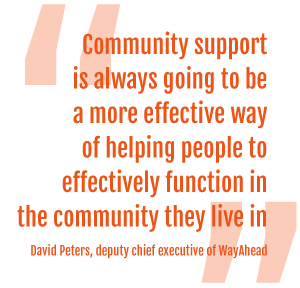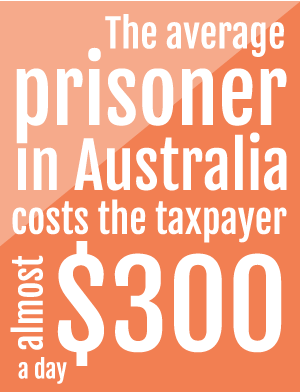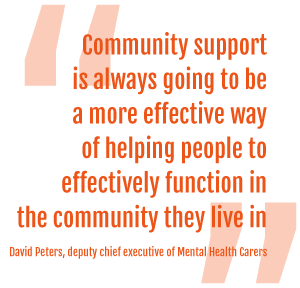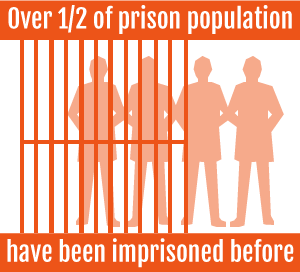The Economics of Incarceration

Follow Up Story
“When we talk about how Australia treats our criminals, often the discussion is about the niceties or otherwise of prison facilities…we don’t talk enough about whether they should be in prison at all”. This is what Andrew Leigh said in his recent speech to the Justice Connections Conference 2015 and he makes an interesting point. Is incarceration always the answer and if not, what are our alternatives?
In his conversation with Brett Collins, Harry Easton looked at the way in which the environment of prison can create a situation in which mental illness develops. However, what about those individuals who already suffer from a mental illness when they commit the crime? Does our justice system need to find a new way of helping them?
One of the greatest issues when talking about the correlation between mental health issues and crime is the danger of overgeneralisation. That is, making it sound like any individual with a mental health issue is highly likely to be a potential criminal. This we know is simply not true. However, it is undeniable that mental health issues are over-represented in the prison community and this is an issue that needs to be dealt with.
According to the Australian Institute of Health and Welfare (AIHW), almost half of those incarcerated have been told by a health professional that they have a mental illness and more than a quarter are on medication for this. However, only 19 per cent of prisoners are offered treatment for mental health conditions while behind bars.
There are various reasons for the rise in mandatory sentencing laws, which effect and limit judicial discretion, and an increase in ‘imprisonment-in-lieu’ orders, where individuals are imprisoned in-lieu of paying back overdue fines. The way in which these two practices work make it difficult for judges to adjust sentences to account for personal circumstances, financial situation, substance abuse, previous convictions and mental illness.

“Some people worry that focusing on rehabilitation as opposed to harsh or mandatory sentencing amounts to being ‘soft on crime,’” Mr Leigh said. “[But] studies show that increasing the size or the severity of the prison sentence does not correspondingly strengthen their deterrence effect.” Instead, Mr Leigh believes it is important to look at other methods of dealing with crime.
Those in the industry have long recognised community-based treatment is an effective and alternative way of dealing with those at risk of offending due to mental illness.
David Peters, deputy chief executive of Mental Health Carers -ARAFMI, believes, “Community support is always going to be a more effective way of helping people to effectively function in the community they live in.”

“We all progress through life with the support of others,” Mr Peters says “and maybe this support will build people up enough, give them the confidence to make a change in their lives.”
One way of promoting the idea of community-based rehabilitation programs that has been championed by both Mr Leigh and fellow shadow minister Shayne Neumann, as well as various economists throughout the country, is the idea of justice reinvestment.
Justice reinvestment is based on the idea that a large majority of offenders come from a relatively small number of disadvantaged social groups. It reasons that the money spent incarcerating these individuals when they offend would be better spent on preventative methods and programs throughout those communities that are at risk.
The idea is to spend money on community support programs to target those individuals at risk of incarceration and those coming out of prison who are at risk of reoffending. And it seems to work.

However, the distribution of money throughout the justice system is a difficult and multi-faceted issue; one that requires political cooperation on multiple levels as well as research into the best way of investing in community support programs.
Overall, there needs to be greater awareness on a number of issues related to the Australian justice system, mental health and the individuals caught up in the former as a result of the latter.
Jean Roxon
View the original story HERE
Newsletter
Stay up to date
Sign up to our Mind Reader newsletter for monthly mental health news, information and updates.
